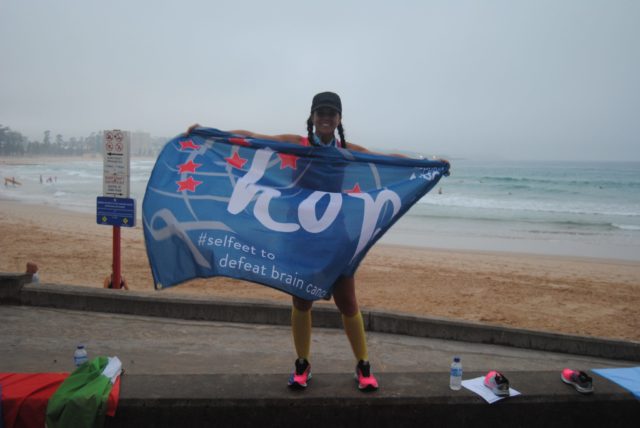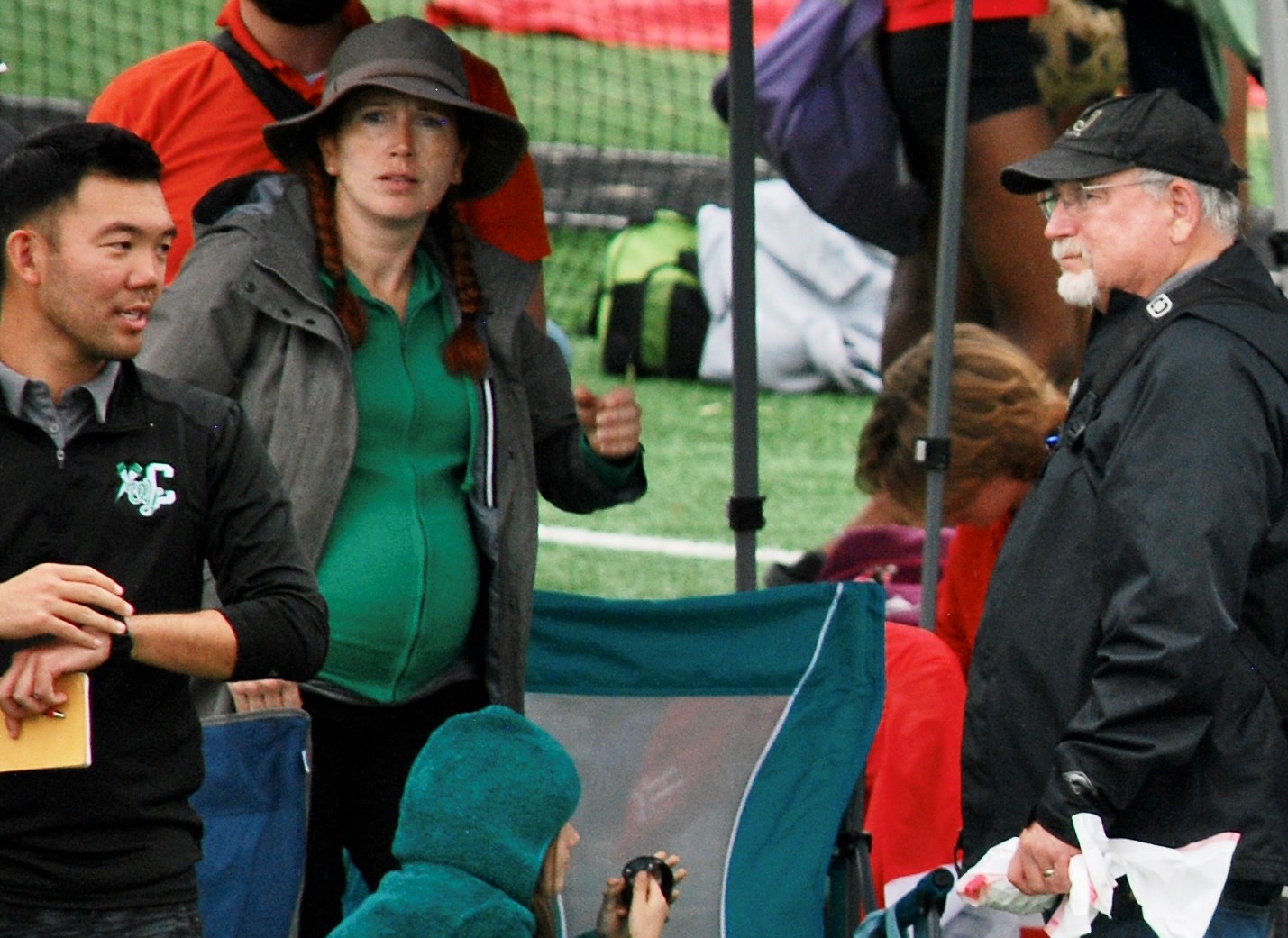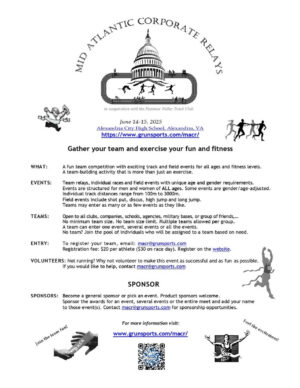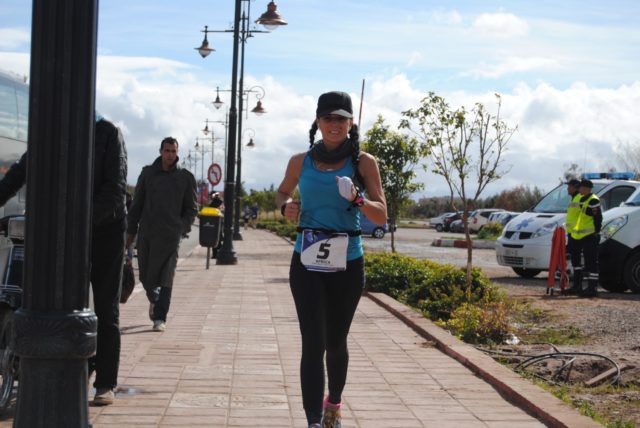
Running seven marathons in seven days on seven continents may sound like an impossible task to your average runner. But there’s nothing average about BethAnn Telford.
In fact, Telford’s challenge wasn’t over even after she crossed the seventh and final finish line at the World Marathon Challenge in Australia on Jan. 29. Of the 33 people competing in the World Marathon Challenge, Telford was the only one with cancer cells in her body.
“Until I find someone who finds a cure I have to keep doing this. Until there’s a cure my finish line isn’t Australia. It’s bigger,” Telford said, days after the races ended.
Telford was a dedicated distance runner well before her diagnosis. While running the 2004 Marine Corps Marathon, she heard a loud popping sound inside her head that drew attention to a brain tumor.
Surgery to remove the tumor opened the door for a new set of challenges when Telford went blind in her left eye, lost control of her bladder and was forced to teach herself how to walk again. The latter didn’t take long, and she was running a 5k five months after surgery.
“Right after that first 5k I was going to be okay,” Telford said. “Even though I had a few more surgeries [ahead], I knew I was going to run again.”
She signed up for and ran the 2005 Marine Corps Marathon, then same race in which she discovered her cancer a year earlier. She’s run it every year since.
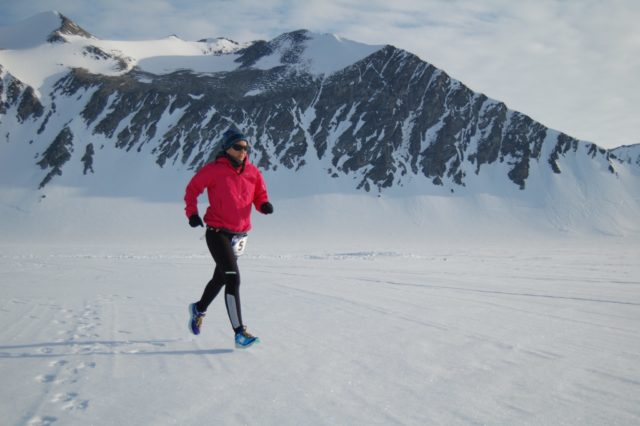
Inspiration
As she battled her cancer, Telford continued racing. She often teamed up with Accelerate Brain Cancer Cure (ABC^2) to raise money for brain cancer research.
It wasn’t until 2015 that she become aware of the World Marathon Challenge. The endurance challenge starts with a marathon in Antarctica, followed by another in Miami one day later. Then on to Spain, then Morocco, then Dubai and finally Australia. All in seven days.
“At first my neurosurgeon couldn’t wrap his head around it — the daily races and the travel,” Telford explained. “He hesitated and I got really worried. But then he was like, ‘No you can do this,’ because I had done a lot of endurance events in the past. I got approval from my brain surgeon, bladder surgeons, and oncologists and we went from there.”
A year of preparation
For the year leading up to the World Marathon challenge, Telford’s training took up every free moment she wasn’t at her job at the Government Printing Office.
“I’d get up at every day at 3:30-4:00 a.m. and get my workouts done,” she said. “Then I’d be in my office by 7:30-8:00 a.m., and I’d work eight hours and then come home and train again.”
Wardian sets record
Arlington’s Michael Wardian won all seven races in the
World Marathon Challenge, averaging 2:46:56 per race
and being named USATF Athlete of the Week after setting
a new record for the series by 45 minutes.
The training program started off with a morning run and weight lifting session with some core work. In the evening she followed up with a cross training session, usually biking or swimming. Every night she did yoga to work on mobility and stretching. Only on Sundays did she take “rest days,” and even those were active — light yoga or a long walk, but never sitting still.
On top of her regular schedule, once a week Telford ran stairs with the Arlington Country Fire Department. She loved the added training and the camaraderie with the crew. While awaiting her last race in Australia, Telford received an e-mail from her friends at the fire department asking when she’d be back so they could run again.
Throughout those 15 months of training, the only real setback Telford encountered was a cold that developed into a mild case of pneumonia. Despite her rigorous training schedule, she managed to stave off any injuries up to and through her seven races
To reduce fatigue during the actual races, Telford’s coach advised her to slow down her pace for the challenge. Instead of running her regular 3:45 marathon pace, Telford aimed for a 4:30-4:40 pace. Except for a speedy 4:11 finish at the Spain marathon, she stuck to her goal.
One thing for which months of training couldn’t prepare Telford was the whirlwind of travel and dramatic climate shifts throughout the seven marathons.
“We went from like 13 below in Antarctica to Dubai, which was the toughest race for all of us. It was, like, in the 90s, but because of how humid it was it felt like] it was in the 100s. We all had ice bags on our heads and necks.”
To supplement the race support staff, Telford brought along a friend to both assist her with her medications and to document the journey. She had to take in fluids through an IV three times over the non-stop week, due to exhaustion and dehydration. But otherwise, she sustained no injuries.
On-the-go
Telford and the 32 other World Marathon competitors flew from destination to destination on a private jet, where they also spent most of their downtime. Often Telford and her fellow runners didn’t have time to shower in between races, as they had to hop on another flight to make it to the next destination.
“We’d use runners’ towels to wipe down — we had to stick to our schedule. But it was amazing how fast the time went. We just kept going,” Telford explained. “All of us were asking what day it was, what time it was, where we were.”
Telford slept whenever possible between races. During the entire one-week challenge, the runners only slept one night in a hotel rather than on the plane. Most all meals were also eaten on the plane.
“I brought my own snacks of stuff I knew I could use to carb-load,” Telford explained. “But the food on the plane was so good. It was more or less designed for you. There was steak and pasta and it was amazing. I had to push myself to eat, I just wanted to sleep when I was done running.”
When she felt down, Telford focused on her mission to end brain cancer. In that, at least, she wasn’t running alone. In South America, a local also battling brain cancer came out to cheer her on. In Miami, many of her friends and family surprised her and ran parts of the race alongside her.
“Miami was my favorite because I got to represent my country,” Telford said. “And all the people who came out to support me. Having them with me was the best part of the whole race.”
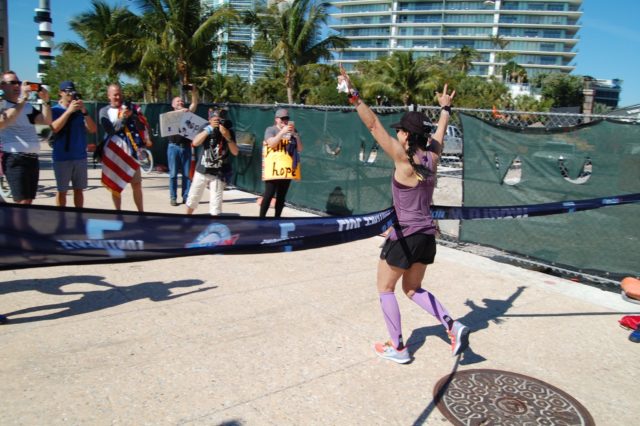
What next?
After crossing the finish line in Australia, Telford said she felt both thrilled to have completed and sad to see the adventure come to an end. During her training and racing, she raised over $800,000 for brain cancer research via Accelerate Brain Cancer Cure. She hopes that number soon reaches $1 million.
Speaking only a few days after the race, Telford said she felt good and would probably go out and run “an easy 10-15 miles this weekend.”
“Oh yeah, if I was allowed to do [the World Marathon Challenge] again and get back on the team I definitely would. It was absolutely amazing,” Telford said.
“Some people just did it because they were able to financially. Anyone can do it if their heart is in it. Just listen to your body,” she added. “I didn’t want to be the first or the fastest. I just wanted to show others that dreams can come true.”
Recent Stories
Looking for our race calendar? Click here Submit races here or shop local for running gear
Hero Dogs 5K9
Hero Dogs Inc will host its 5th Annual 5K9 race at the Congressional Cemetery on Saturday, May 17th, beginning at 8 am. There will also be a 1K Fun Run. The 1K Fun Run will start at 8 am sharp
Mid Atlantic Corporate Relays
Team relays, individual races and field events with unique age and gender requirements. Events are structured for men and women of all ages.
Some events are gender/age graded. Individual track distances range from 100m to 3000m.
Field events include shot


